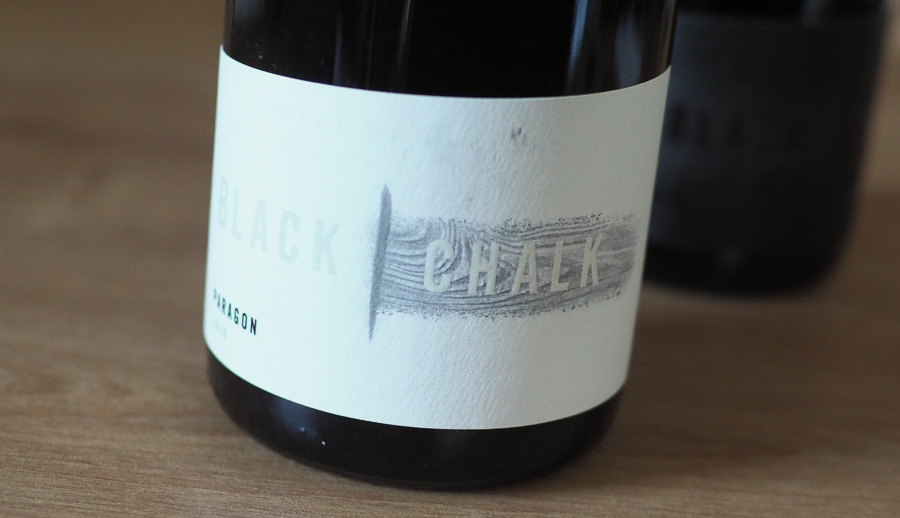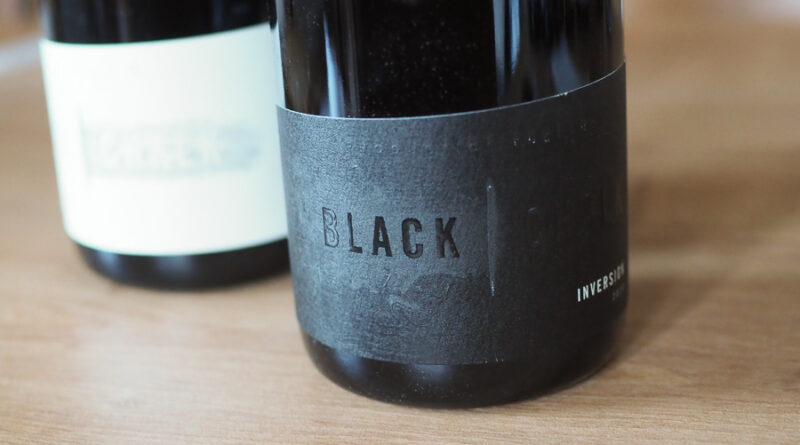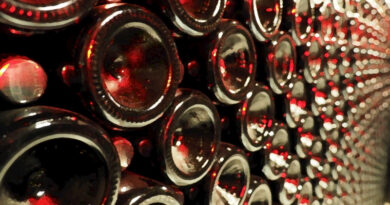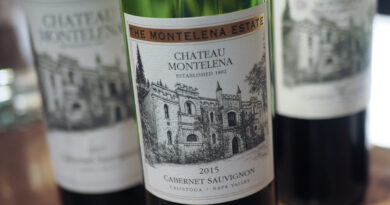Paragon and Inversion: two stunning prestige cuvées from English sparkling wine produced Black Chalk
These two prestige cuvées from Black Chalk have both spent 26 months on lees, which is relatively short for such ambitious wines. That’s because all the focus is on the quality of the fruit, and thus the quality of the base wines. I spoke to winemakers Jacob Leadley and Zoe Driver about what they were trying to do. I should add right at the beginning that the wines are totally spectacular, and I’m really impressed especially by the Blanc de Blancs.’
‘We put a lot of pressure on ourselves, and my natural place to be with any new wines is to be quite negative about them and keep your feet firmly on the ground,’ says Jacob. ‘With the Blanc de Blancs, the oak element and the time we spent blending it, and the right amount of time on cork before we released it – there were a lot of little decisions.’
They are both very different wines. ‘We made a conscious decision at the blending table to create two very different examples of what Hampshire can do.’
Is base wine composition versus time on lees something they talk about much? ‘For most of our wines, if not all of them, because we pick clone by clone and keep them separate, when we come to blending, we try to create wines that are interesting and complex from piecing together different components, rather than relying on things like time on lees,’ says Zoe. ‘We want to get the base wines right before second ferment so we can release the wine when we feel it is ready, rather than keeping it for years and years.’
‘If you go back to the beginning of Black Chalk,’ says Jacob, ‘the whole premise behind it was about trying to showcase what Hampshire does really well: those fruit forward base wines that we can achieve and the precision that already exists from the chalk. Now that we are looking after our own vines and have the winery set up to be able to keep all the clones separate ramps things up a little bit and allows us even more options, and a heightened ability to pinpoint excellent clones in a specific year. I say a specific year because the vintage variation in the UK is quite up and down. It is not always Chardonnay [clone] 95 that does well. For the Inversion, [Pinot Noir clone] 777 has done well every year that we have been here. This might be the exception to the rule. Yes, the base wines have to be immaculate before they go into secondary fermentation.’
‘For the Blanc de Noir in 2020,’ says Zoe, ‘we read and heard a lot about 777 and what a nice clone it is and how well it does, so we kind of had our eye on it anyway. When it came into the winery it was just quite unlike any of the Pinot base wines that we’ve had. It was so big and powerful and had a real presence. It was a really interesting base wine, so we used this as the main component for the Blanc de Noir supported by a couple of other Pinot Noir clones and one clone of Pinot Meunier. It only has about 3% old oak. It was more about letting this Pinot do its thing. It had no malolactic either. It wasn’t masked by any winemaking techniques. It was a really interesting wine to piece together because we were relying on the 777 clone to do the talking. After some time on cork it has really developed. It is a screaming Pinot Noir.’
Both were bottled in May 2021 and then disgorged in July 2024. They have had 9 months on cork. ‘This is really important,’ says Jacob. ‘Both the wines were very different in August 2023. We know this and live it every year, and yet it still doesn’t do anything to reduce the anxiety around releasing a new wine. Thank goodness we didn’t have to release them then. It would have been such a shame. After 9 months [on cork] they are still developing and they are getting better and better. The Inversion, in particular: for me it screams the elegance of Pinot through the whole wine. It has that richness and this certainly wasn’t present in August last year.’
The Paragon: ‘We knew that we wanted to make a Blanc de Blancs,’ says Jacob, ‘and we worked with these vineyards in the past: we know the Chardonnay that comes off these sites is particularly good, especially in a good year. For us, Hampshire is a sweet spot on the chalk for sparkling Chardonnay. From a fruit quality point of view it is incredible.’
‘In 2020 we had the frosts early on, so we had a slightly reduced yield. All the fruit in there comes from the upper levels. We picked the top 10 bays of each row for this wine. Just under half went into a 2300 litre first-fill oak cask, and the rest went into stainless steel. We wanted to make a Blanc de Blancs that wasn’t another Hampshire Blanc de Blancs, that wasn’t about clean bright fruit and a load of lees ageing to give it some interest and texture. We played around at the blending table and 2020 was lovely ripe fruit. We used CH9 yeast which has enhanced the aromatics a little and worked very well with the oak. We went back and forth on the stainless steel and oak component and in the end we said the fruit could handle it as long as we didn’t complicate it too much by having too much time on lees, by having that autolytic character too strongly.’
Both wines have been made each year since with the exception of Paragon in 2021: they picked the Chardonnay in November and it ‘was rubbish’ says Jacob. They also have a couple of other premium projects in the pipeline. The 2023 has just gone through cold stabilization and is looking very good.
Black Chalk Inversion 2020 Hampshire, England
12.5% alcohol. This is 87% Pinot Noir, 13% Pinot Meunier. Highly aromatic with a slight herby edge to the vivid lemon and cherry fruit on the nose. The palate is bright, juicy and fresh with a tart sour cherry and lime quality, a hint of toast and yellow plum, and vibrant acidity. This is youthful, pristine and finishes slightly sour: a very appealing, quite serious, primary Blanc de Noirs style. Zippy and incisive, and with some potential for development. The acidity is pronounced right now. 93/100

Black Chalk Paragon 2020 Hampshire, England
12.5% alcohol. Such refinement here: this is a remarkable wine, with beautiful crystalline citrus fruit at its core but also notes of pastry and fresh-baked bread, as well as pear, white peach and aniseed, with a slight salinity. The acid is beautifully integrated and there’s such a flow across the palate. Sophisticated and fine with amazing texture, and almost perfect balance. Complex notes of orange peel, hazelnut and fresh-baked bread in the mix, too. 95/100
Both wines are available from Black Chalk directly, £65 a pop.




